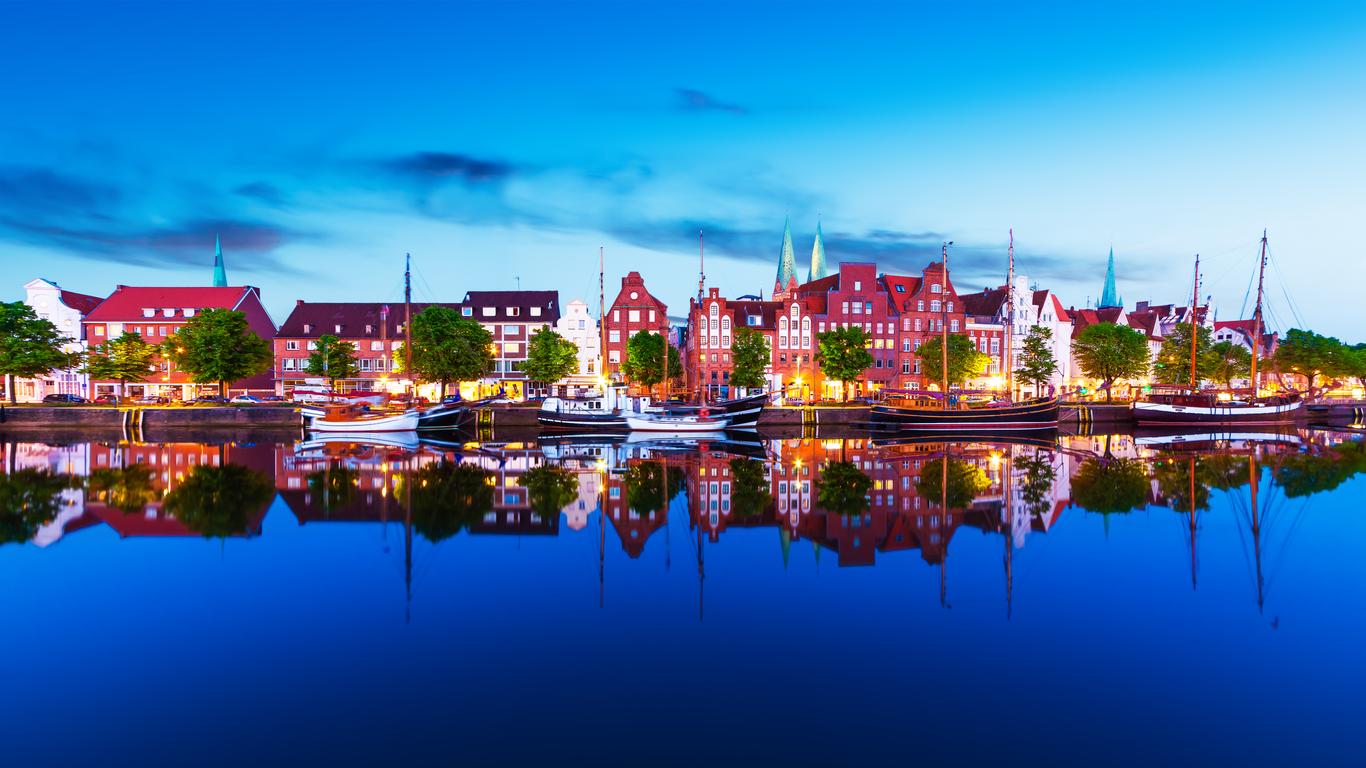Lubeck is situated on the River Trave in the state of Schleswig-Holstein in northern Germany. It is a major port city oozing with infamous preserved architectural buildings of Gothic fashion and accordingly listed as a UNESCO World Heritage Site. Its medieval charm, riverfront attraction, and reigning marzipan industry make for a visitor’s complete sightseeing and sugar-craving satiation.
The area’s architectural sights are highlighted by the Holstentor, a landmark city gate, the Gothic church Marienkirche, and historic Heiligen-Geist-Hospital. A concentration of museums succeeds in preserving a lot of the city’s importance including the Europäisches Hansemuseum, Museumsquartier St. Annen, and Museum Holstentor, among many others. The predominance of marzipan cafes and a colourful nightlife scene makes for a well-rounded enticing location.
Transportation to the area is serviced by trains running between Lubeck and Hamburg, ferries that join Lübeck and it’s neighbouring beach resort of Travemünde and the local Stadtverkehr Lübeck city bus. The A1 Autobahn connects Lubeck by roadway, and the Lübeck-Blankensee Airport is 8 kilometres from the city centre. Downtown historic Altstadt is most easily explored on foot.
Lubeck subsisted as a Hanseatic port city and corresponding exit point for conquered colonists during the early 11th century. It became the Free City of Lubeck in 1226.





